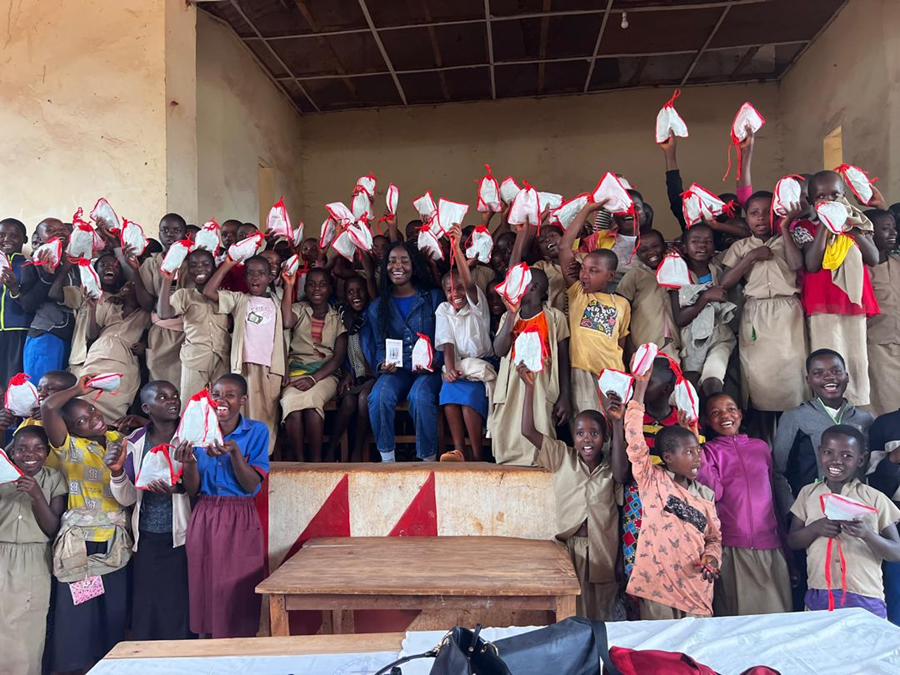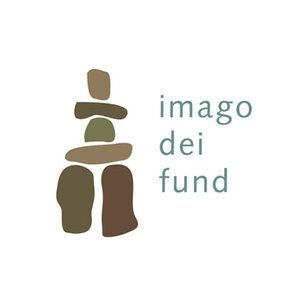
OUR PROGRAMS
Menstrual Hygiene Management


Agateka*
This project aims to promote health and good menstrual hygiene management among young girls and women through education, the production and distribution of reusable sanitary pads. These pads, which last 3-5 years, can be worn with or without underwear and come in three sizes: large, medium, and small.
We utilize a multi-faceted approach to advance menstrual health: community sensitization through roadshows and radio broadcasts, payment plans for VSLA members who wish to purchase Agateka pads, and free distribution drives of pads in schools and to vulnerable groups, such as those in hospitals and refugee camps. So far, the project has impacted girls and women in Bujumbura, Cibitoke, Gitega, Karusi, Kirundo, Makamba, Muyinga, Ngozi, and Ruyigi.
*Dignity
109,970
women in Burundi have purchased and used Agateka reusable sanitary pads.
213,756
schoolgirls in Burundi have received free Agateka reusable pads, to use for 3-5 years.

Hinduka uhindure abandi*
This project aims to enhance knowledge about sexual and reproductive health and rights (SRHR). We educate, raise awareness, and inform the population to improve their SRH and provide SRH services at the Gatumba Health Centre. Our approaches include mass education via an SMS platform with a toll-free number, allowing users to receive messages directly on their mobile phones and ask questions privately. The youth receive messages based on “The World starts with me” module from the Ministry of Education, while adults receive content from the “Community Health Worker's Handbook” by the Directorate of Health Promotion. We also produce educational videos and organize roadshows specifically tailored to illiterate populations.
*Change and help others change
143,026
youth and women have been reached by our toll-free mobile SMS education project.
4,160
women have adhered to modern contraceptive methods of their choice.

Ikiyago*
This project aims to enhance communication between parents and children, encouraging youth to rely on their parents for accurate information regarding SRH. We hope to reduce the spread of misinformation among peers and improve parent-child communication on SRH, helping to reduce unwanted pregnancies and STIs. The beneficiaries of the project are student peer educators and their parents in Karusi and Ngozi.
*Conversation
100
young peer-educators have been trained on how to communicate with parents about SRH.
100
parents have been trained on how to communicate with the youth about SRH.

Ishure ry'inyenyeri*
This project aims to improve hygiene, health, and SRH education in schools. Inspired by UNICEF’s and GIZ's "three-star school" approach, we promote a shift in perceptions and practices, urging schools to evolve from zero-star to three-star status by focusing on hygiene. We train and equip school guardians, establish school clubs through which we educate and raise awareness, and assess the schools’ needs for water and sanitation facilities, which are addressed through the Isuku project. We operate in all regions where we have community centres and in partnership with the Ministry of Education, and the Ministry of Public Health and fight against AIDS.
*The school of stars
11,830
young girls and boys are members of Inyenyeri school clubs.
843
school educators have been trained on the Three-Star-School approach.

Isuku*
This project aims to improve hygiene, access to water, and sanitation in communities by facilitating the building and rehabilitation of WASH facilities. Beneficiaries include families of members of our VSLAs and some schools enrolled in the Ishure ry’inyenyeri project. The project operates in Bujumbura Rural, Cibitoke, Gitega, Karusi, Ngozi, Kirundo, Muyinga, Ruyigi, and Makamba.
*Hygiene
216
schools now have access to clean water and MHM-friendly sanitation.
4,471
displaced households now have access to clean water and MHM-friendly sanitation.

Iterambere*
This project focuses on promoting the financial independence of women and youth by teaching them financial literacy, and entrepreneurship, promoting the creation of VSLAs, and supporting income-generating activities. Women who are members of VSLAs also have access to self-directed payment plans when they wish to purchase Agateka reusable sanitary pads. We operate in Bujumbura, Gatumba, Cibitoke, Gitega, Karusi, Ngozi, Kirundo, Muyinga, Ruyigi, and Makamba.
*Development
1,874
VSLAs have been created.
6,291
income-generating activities started by members of VSLAs.

OKY Burundi
Oky is the world’s first period-tracker app created by UNICEF for girls and with girls. It provides information about menstruation in fun, creative and positive ways, straight into girls’ hands through the tools they use every day – mobile phones. As OKY's main implementation partner in Burundi, we collaborated with multiple stakeholders including government Ministries, educators and Burundian girls to translate the app to Kirundi and adapt the user experience and content to local contexts. The app is available for download on Google Play and the Apple App Store.
100
girls with different backgrounds and abilities participated in the co-creation of the Kirundi version of the app.
2,376
Burundian girls currently use the app as their main period tracker.
Impact stories
From Deerfield to Burundi: Jessica's mission to end period poverty
14 Aug 2025
SaCoDé winner of the TaroWorks 2024 humanitarian technology grant
14 Nov 2024
Promoting menstrual health and hygiene in universities
14 Nov 2024
More than 80% of Burundian women cannot afford menstrual pads every month. And in 2016, a UNICEF study found that 70.2% of female students do not attend school during their menstrual periods. The lack of adequate and hygienic menstrual hygiene management (MHM) tools, facilities and education severely impacts women in Burundi, including girls’ education. Addressing MHM is not only a health matter but also an educational and women's rights issue.
Our MHM activities aim to ensure that women and girls have access to proper MHM through education, awareness, adequate infrastructure and resources. It seeks to promote dignity, health, and educational continuity for girls in schools. Approaches include producing and distributing Agateka reusable sanitary pads, and providing MHM training and counselling to communities.
Below are projects that aim to achieve some or all of our Menstrual Hygiene Management objectives.
Objectives
Improve access to sanitary products for women and girls.
Educate communities on menstrual hygiene management.
Reduce stigma and taboos associated with menstruation.
Promote gender equality by ensuring girls can continue their education during menstruation.






















